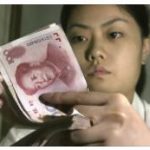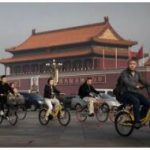China: Various travel information
Formalities, visas
To enter the PR China you need a valid passport and a visa. The visa can be obtained from the diplomatic mission of the PR China, the following documents must be presented:
Passport
the original passport with a minimum validity of six months beyond the travel time and a free page for the visa
a legibly completed application form plus a photo
the visa fee
if you want to stay in the People’s Republic of China for more than six months, you need a current AIDS certificate
Passport photo
One passport photo per visa application
Machine pictures and original black and white photos are accepted
Visa application
A completed and signed visa application
official invitation if applicable
An official invitation (original and copy) from the relevant ministries, provincial governments or companies and institutions authorized by them in the PRC is only required for issuing multiple business visas.
if necessary, official work permit
For a work visa, you need a work permit from the Ministry of Labor and Social Security of the People’s Republic of China or an expert card from the Office for Affairs of Foreign Experts or an official invitation from competent bodies (original and copy).
if applicable, letter of admission from a Chinese university
It is also possible to obtain a residence visa by means of an admission letter from a Chinese university and the JW201 or JW202 invitation form (original and copy).
Applicants without German, Austrian or Swiss citizenship
Applicants without German, Austrian or Swiss citizenship need a copy of their residence permit in Germany, Austria or Switzerland.
Processing time
The processing time for your visa application begins at the earliest 50 days before the travel date. The normal processing time is 4 days. All papers must be submitted or picked up in person or at the representation. Applications for a visa by post will not be accepted. All data entered in the visa must be checked thoroughly when the documents are received.
In order not to slow down or extend the processing time unnecessarily, it is advisable not to apply for the visa at the cheapest rate. As a rule, the embassies endeavor to complete the visa applications for the more expensive “urgent tariffs” on time. Application form for a visa to the PR China: www.china-botschaft.de
For entry to Hong Kong German, Austrian and Swiss nationals need to apply for a visa for a stay of less than three months. For a stay longer than 3 months German, Austrian and Swiss citizens need a valid passport and a visa.
Documents required to enter Hong Kong:
Passport with a validity of at least 6 months and with at least one blank page for the visa A fully and legibly completed Hong Kong application form with a photo A confirmed hotel booking A confirmed ticket booking For studying, internship or starting work in Hong Kong you need: Another letter of recommendation from the German university or college a confirmation or an employment contract from the university or company in Hong Kong and their name and address in Hong Kong.
Processing time
Processing usually takes 6-10 weeks.
Visa fees
- Visa fees can be paid by crossed check or in cash.
- Cost per person: 30 euros
- For a child traveling with you: 20 euros
- Fee for telecommunication with the competent authority of HKSAR (Hong Kong Special Administrative Region Government): 20 euros
For the entry to Macao German, Austrian and Swiss nationals need to apply for a visa. Entry is visa-free.
Consular department of the embassy of the PR China
Märkisches Ufer 54
10179 Berlin
Tel: 0049 – (0) 30 – 48 83 97 22
www.china-botschaft.de
Visa section of the PR China in Hong Kong
5th Fl., Lower Block, China Resources Building 26, Harbor Road, Wanchai
Hong Kong
Tel: 00852 -28 27 95 69 General visa exemption Since December 28, 2017 there is the possibility of a six-day visa-free To spend transit stay in Beijing. This considerably simplifies a stopover in the Chinese capital before continuing on to a third country. Previously, only 72 hours were allowed. This visa exemption applies to transit travelers from 53 countries. In addition to Germans, the regulation also applies to other citizens of the European Union as well as US citizens, Canadians, Australians, South Koreans and Japanese.
In addition to Beijing, the regulation also applies to Tianjin and the surrounding Hebei Province. The metropolises of Shanghai, Hangzhou and Nanjing had previously introduced a visa-free regime for transit travelers over six days.
In addition, three-day stays without a visa during transit are also offered, for example, in Guangzhou, Chengdu, Chongqing, Shenyang, Dalian, Xi’an or Guilin.
How do you get to China?
Air connections
From many European airports, the cities of Hong Kong, Beijing and Shanghai as well as Macau and Canton are served several times a week. There is also regular international air traffic from the Chinese cities of Chongqing and Kunming to numerous other Asian cities. The capital Beijing is used by some flight connections to Shanghai as a stopover. The average flight time from Frankfurt am Main to Beijing is usually around ten hours. A flight to Hong Kong takes around 12 hours.
Trans-Siberian Railway
One of the most exciting ways to travel to China is to take the Trans-Siberian Railway. A few weeks before the planned start of your trip you should contact a very experienced travel agency because of the rather complex visa and the less complicated procurement of tickets. Please note that your passport is still valid for at least six months after the start of your trip and that the complete travel documents (passport and visa applications) are available to the tour operator two months before the start of your trip. The journey to China usually begins with a flight or a train ride to Moscow. You board the train to Beijing at Yaroslavski Station in Moscow. There are two trains to choose from, each running once a week:
- either in five and a half days with the better maintained and equipped Chinese train to Ulan Bator through Mongolia with the corresponding entry into China via Erlian
- or by Russian train through Manchuria in six and a half days and then enter China via Manzhouli.
- The return journey from Beijing to Moscow with the Trans-Siberian Railway should be carefully considered, as the trains are immeasurably overcrowded because of the Russian or Chinese salesmen. If you are returning by train, you should book your ticket at a travel agency and get the visa first from the Russian and then from the Mongolian embassy. Please allow several hours to wait.
bus
There are two ways of entering China by bus: either from Pakistan or from Nepal. It has been possible to travel to China from Pakistan via the Karakoram Highway since 1986. Entry visas can be obtained from the Pakistani and Chinese embassies. The Karakoram Highway can only be used between April and October and leads via the cities of Rawalpindi, Islamabad and the Khunjerab Pass at 4600 meters to the Chinese province of Xinjiang. Any interruptions are possible along the entire route as accommodation is very easy to find. From Nepal you can enter the Tibetan capital Lhasa from the Nepalese capital Kathmandu with the appropriate seven-day entry visa via a change at the Khodari Pass and via Shigatse. The visa for Nepal can be obtained directly at the airport of Kathmandu, the Chinese visa should be arranged before departure. This travel rod requires a certain degree of physical resistance, as there are no washing, overnight or catering options. Under certain circumstances, the traveler is not spared even short walks with or without luggage.
Travel in the country
High-speed
trains China began expanding high-speed train connections in 2007. In December 2009, the maiden voyage of the new high-speed train took place on the route from Wuhan on the Yangtze River to Guangzhou (Canton) near Hong Kong in southern China. The train reaches a speed of almost 350 km/h and therefore only needs about 3 hours for the 1,069 km route. The route runs over 225 tunnels and 670 bridges – with 25 train stations – and cost around € 9 billion. On December 26, 2012 – Mao Tse-tung’s birthday – the connection from Wuhan to Beijing was completed. From then on, Guangzhou, 2,300 km away, can be reached from Beijing in just eight hours. On its journey, the train reaches top speeds of around 300 kn/h.
On July 1, 2011, the 1,320 km long route from Beijing to Shanghai was inaugurated, where speeds of around 350 km/h can be reached. The train takes about 5 hours for the route and has three classes: Economy, Business and First Class. This route even cost around € 24 billion.
A total of around 50,000 km of high-speed lines are to be built by 2020. Because of this program, the Transrapid has no future in China. It should be mentioned that the German planning company Obermeyer from Munich was involved in the planning and quality management.
Tibet Railway
The railway connection between Xining – the capital of the Qinghai Province – and Lhasa, the capital of the Tibet Autonomous Region, is a special feature. On its journey, the train crosses the Tanggula Pass at an altitude of 5,072 m. Since many passengers have breathing problems, train attendants go through the train with “oxygen dispensers”. The journey takes around 12 hours. From Beijing, the traveler to Lhasa takes around 48 hours.
The total distance from Xining to Lhasa is 1,956 km. The section from Xining to Golmud is 814 km long and has been in operation since 1984. The route from Golmud to Lhasa is 1,142 km long. It has been in operation since 2006.
Some data
The train consists of 16 wagons and is pulled by three locomotives
Around 960 km of the route are at an altitude of over 4,000 m.
The highest station is “Tanggula” at an altitude of 5,068 m.
The highest tunnel is the Fenghuo Shan tunnel at an altitude of 4,905
m. Tunnel the longest tunnel in the railway connection
There are 675 bridges on the route.
The official opening date was July 1, 2006
Flight connections
The number of flight connections to and from China is growing steadily, as more and more large Chinese cities, for example, are being served directly from Europe. In many cities, new airports, mostly of huge dimensions, have been or are being completed. There are a large number of airlines in the PRC, which mainly focus on domestic traffic. The tickets are cheap, the supply is usually slightly above the demand and security has improved a lot over the past ten years. There are still no regular flight connections between the People’s Republic of China and Taiwan. The flight connections within the PR China, each from Beijing, at a glance:
Chengdu: 2:35 hours
Chongqing: 2:30 hours
Dalian: 1:10 hours
Guilin: 2:35 hours
Hangzhou: 1:50 hours
Harbin: 1:40 hours
Hohhot: 1:15 hours
Canton: 2:40 hours
Kunming: 2:55 hours
Lanzhou: 2:10 hours
Qingdao: 1:15 hours
Shanghai: 1:50 hours
Taiyuan: 1:35 hours
Ürümqi: 3:55 hours
Wuhan: 1:45 hours
Xi’an: 2:00 hours
General information on transport
China’s transport infrastructure is constantly being improved. Large sums of money are invested in the construction of roads, especially in cities, railway lines and new airports. In the metropolitan areas in particular, many traffic routes already meet the Central European standard. Only in remote areas are there still inadequate transport links.
With the inauguration of the Nathu-La Pass in the Himalayas in June 2006, the first direct crossing between China and India was created. The pass reaches a height of around 4,730 m. However, due to the weather conditions, the pass road is difficult or impossible to pass most of the year.
Bus
tickets for the Chinese local buses are bought by simply telling the bus attendant the destination, holding out the money and taking a ticket. Depending on the line, you pay 1 to 2 ¥ uan, longer distances cost more. In the big cities buses are usually overcrowded and because of the huge crowd you should be careful of your valuables.
Taxis
A taxi is easy to find in the PRC – it is the easiest way to get from A to B in Chinese cities. The taxi drivers do not respond to loud calls like in European countries. You definitely have to overcome the crowd of waiting drivers and go to the taxi rank. The taxi drivers are waiting by the car there. A sticker on the outside of the car door provides information on the kilometer price. Usually there is a basic fee and a route-dependent price. You can cover short distances from just 8 ¥ uan. When starting your journey, you should make sure that the taximeter is switched on and at least pretend that you know your way around, or better – as if you could follow the route on a map. It is recommended Before every trip to your hotel, you should be given an address in Chinese for your destination and for the return trip a business card from the hotel, as the taxi drivers rarely understand a foreign language. As a tourist you also run the risk of paying overpriced taxi fares. At airports in particular, it is advisable to take an airport bus to the city center. This service has been set up in Beijing and Shanghai. Normally foreigners are picked up by the hotel pick-up service or by their business partners at the airport. take an airport bus to the city center. This service has been set up in Beijing and Shanghai. Normally foreigners are picked up by the hotel pick-up service or by their business partners at the airport. take an airport bus to the city center. This service has been set up in Beijing and Shanghai. Normally foreigners are picked up by the hotel pick-up service or by their business partners at the airport.
Rental cars
In general, rental cars are only available with a chauffeur, as foreigners are only allowed to drive in special cases. In general, you should contact the hotel reception or one of the state travel agencies for a planned excursion by car.
Rental bicycles can be rented in larger hotels, although it should always be noted that you have to drive slowly in the PRC and ring the bell constantly.
Ferry connections
Several shipping companies call at the two special administrative areas of Hong Kong and Macau every day. Cunard Cruiseline, Holland America Line, Radisson Seven Sea Cruises, Royal Caribbean Cruiseline and Seaborne Cruiseline all call at Hong Kong. There are around a hundred ferry connections to Macau every day. The city can be reached by catamarans, hydrofoils or large turbocats. The journey time varies between an hour and 10 minutes (catamaran) and 55 minutes by hydrofoil. In general, air-cushion boats operate between Hong Kong and China, and several ships call at the largest ports in China. As the ferries and boats are often overcrowded on weekends, the best time for sightseeing is on weekdays.
Bicycles
Almost every Chinese used to ride a bicycle. But as a result of the rapidly growing prosperity, bicycle traffic fell sharply. It is only recently that many Chinese are rediscovering
the advantages of the bicycle.
Tourist office
Tourist Office of the PR China in Germany
Ilkenhansstrasse 6
60433 Frankfurt/Main
Tel: 0049 – (0) 69 – 52 01 35
E-Mail: info@china-tourism.de
Web: www.fac.de
Currency, shopping, customs regulations
National currency The national currency of the People’s Republic of China is the Renminbi ¥ uan (RMB ¥), but mostly just ¥ uan or Kuai called
1 ¥ uan = 10 Jiao = 100 Fen
Country-specific goods, souvenirs
In the hotels and the so-called friendship stores, you can pay for luxury items (such as spirits) imported for visitors in foreign currency. Travelers checks should be made out in US dollars. Jade, silk and pearls can also be found in the relevant markets in the PRC. Well-known markets are:
the silk market in Beijing (in Shuixiu Lu, daily from 11:00 a.m. to 6:00 p.m.)
the Fenghuang silk carpet factory in Xian (at 33 Donger Lu, daily from 9 a.m. to 5 p.m.)
the first address for pearl shopping – South Pearl in Guilin (at 35 Xishan Lu, 9:00 a.m. – 6:00 p.m. daily)
the jade market in Hong Kong (on the corner of Kansu and Canton Road, in Kowloon, daily 11 a.m. – 4 p.m.)
Officially, there are no mandatory shop closing times in the PRC. State shops are usually open 7 days a week from 9:30 a.m. to 8:30 p.m., private shops are often a little longer. Banks in China usually open from 9 a.m. to 12 p.m. and 2 p.m. to 5 p.m. and post offices often open from 8 a.m. to 7 p.m. Only in the state department stores and supermarkets of China is it not possible to trade, otherwise it is possible to haggle over the prices of the goods. The price differences for food (fruit, vegetables, etc.) are usually very small. The prices of goods such as clothing, jewelry or electronics sold in the Chinese markets can sometimes be pushed down to 1/4 to 1/6 of the original price.
Beware of exotic souvenirs
Please find out before you start your trip which souvenirs may not be imported for reasons of species protection. Quite a few tourists experience a nasty surprise on their return, when the memento is confiscated by customs or even punished.
Special customs regulations
When you enter the country, you must fill out a health and customs declaration. You will receive a copy of the customs declaration, which you must present again when you leave the country. The import of weapons, drugs and pornography (broad interpretation) is prohibited. In addition, the import and export of plants and animals protected under the Washington Species Protection Act is prohibited. Violation can result in severe penalties.
Since August 22, 2005, 400 cigarettes, 2 bottles of spirits (750 ml each) and foreign currency may be brought in duty-free when entering the PRC. However, foreign exchange and valuables, such as cameras, must be declared upon entry and presented together with the declaration upon departure. Film cameras over 16 mm also require approval.
On the other hand, according to zhengsourcing, the export of antiques is subject to strict regulations, divided according to the type and importance of the art objects. Coins from the time before 1949 are no longer allowed to be exported at all, most antiques only if they have the red seal of the Chinese cultural office. Special rules apply to certain antiques and works of art. Please inform before buying in China.
Travel medicine, vaccinations and warnings
Infectious diseases
In China, the following infectious diseases are to be expected in Germany and Central and Northern Europe:
Malaria: there is a risk of malaria in the following provinces:
Hainan
Yunnan
Guangxi
Fujian
Guangdong
Guizhou
Hunan
Jiangxi
Sichuan
Xizang
Anhui
Hubei
Jiangsu and
Shandong
There is no risk of malaria in any of the other provinces or major cities, including Hong Kong. Except for the provinces of Hainan and Yunnan, only the less dangerous tertian malaria occurs.
Amoebic dysentery – only when consuming contaminated food or drinks
Bacterial dysfunction – only when eating contaminated food or drinks
Schistosomiasis
Lyme disease – from tick bites
Chikungunya
Cholera – an infection risk exists only for travelers who come into contact with polluted water or contaminated food. can
Dengue fever – especially on the coast in the south of the country
Intestinal infections from contaminated food or water, including amoebas, lamblia, salmonella, shigella, worm infestation and all kinds of viruses and bacteria
Filariasis – isolated occurrence in the south of the country
Typhus – especially in the bushland in the south of the country
Fox tapeworm
Hepatitis A and B
Japan encephalitis – Risk months May to October, occurrence particularly in the eastern and central provinces
Kala-Azar – occasional occurrence, especially in the northwest (Xingjiang) of the country
Leishmaniasis
Polio, polio
Plague – relatively rare occurrence, particularly in Qinghai and Xizang provinces
Tetanus – occurs nationwide
Rabies – is relatively common and occurs across the country
Typhoid – but there is only a risk of infection for travelers who come into contact with polluted water or contaminated food
Avian flu – people have also been infected with the H 5 N 1 virus.
Vaccination recommendations
When traveling to China, the following vaccinations recommended:
Cholera – but only for travelers who can come into contact with polluted water or contaminated food.
Diphtheria – a vaccination against diphtheria should always exist, also in the home country.
Hepatitis A and B
Japan encephalitis
Polio, polio
Tetanus – a vaccination against tetanus should always exist, also in the home country.
Rabies – but only for high-risk travelers who can come into contact with the vector animals.
Typhoid – but only for travelers who can come into contact with polluted water or contaminated food.
Compulsory vaccination
For all persons older than a year and arriving from a yellow fever infection area designated by the WHO, there is a compulsory vaccination against an illness with yellow fever.
Special features
Almost all medicines used in Europe are available in the PRC. In an emergency, the addresses of German or English speaking doctors in China are available from the embassy. In the case of chronic ailments, there is also the option of acupuncture treatment in one of the traditional clinics. Most hotels have their own medical emergency service or organize medical assistance for their guests. The medical standard is high in the big cities, and there are even separate medical wards for foreigners. In order to prevent gastrointestinal complaints, care should be taken with ice, unpeeled fruit and tap water, especially in the subtropical and tropical south.
International license plate
China’s international license plate is:
| CN/CHN |
Foreign Office of the Federal Republic of Germany
Citizens Service
Telephone: 0049 – (0) 30 – 5000 – 2000
www.auswaertiges-amt.de/de
Emergency numbers
police
- China: 110
- Hong Kong: 999
- Macau: 57 33 33
fire Department
- China: 119
- Hong Kong: 999
- Macau: 57 22 22
Emergency doctor
- China: 120
- Hong Kong: 27 13 55 55
- in Kowloon (on Hong Kong Island): 25 76 65 55
- Macau: 57 71 99
Railroad
Public transport in the PRC is often overcrowded, so it is worth paying an additional 30-50 ¥ uan for the tickets at a travel agency. The Chinese state railway knows four classes (hard seaters/hard seaters, soft seats/soft seats, hard sleepers/hard seats, soft sleepers/soft seats). The soft classes usually correspond to the European standard of the first classes, so that the Chinese railway staff usually offer these classes to foreigners for booking. The hard seaters are the cheapest seats and definitely not recommended. The soft-seaters are mainly available for daily trips and are definitely recommended. The hard-lying compartments are perfectly adequate for night trips. Most of these are open six-bed compartments, which are often fully booked on public holidays. The soft sleepers are the seats of the Chinese luxury class. The comfortable compartments for two or four people are mostly booked by rich Chinese and cost almost as much as a plane ticket. When buying tickets you should note that the train staff often only speak a few bits of English. Tickets should be purchased at the major train stations as there are special counters with English-speaking staff.
China: embassies, consulates
Representations of the PR China in Germany
The building of the Embassy of the People’s Republic of China in Berlin has been located on the Spree since 1999 – in the immediate vicinity of the Jannowitzbrücke train station. The building, built in 1988 and now completely renovated, housed the board of the “Free German Trade Union Federation” (FDGB) of the former GDR until 1990.
Almost every day, diagonally across from the embassy, some people demonstrate against the oppression of Tibet or the persecution of the Falun Gong sect.
Embassy in Berlin
Märkisches Ufer 54
10179 Berlin
Tel: 0049 – (0) 30 – 27 58 80
Email: de@mofcom.gov.cn
Web: www.china-botschaft.de
Consulate General in Frankfurt
Mainzer Landstrasse 175
60326 Frankfurt am Main
Tel: 0049 – (0) 69 – 90 73 46 87
Fax: 0049 – (0) 69 – 90 73 48 37
Consulate General in Hamburg
Elbchaussee 268
22605 Hamburg
Tel: 0049 – (0) 40 – 82 27 600
0049 – (0) 40 – 82 27 60 13
Consulate General in Munich Romanstrasse
107
80639 Munich
Tel: 0049 – (0) 89 – 17 30 16 11
German representations in China
Embassy in Beijing (Peking)
17 Dong Zhi Men Wai Da Jie
Chaoyang District, Beijing, 100600
Tel: 0086 – 10 – 85 32 90 00
E-Mail: info@peking.diplo.de
Web: www.peking.diplo.de
Consulate General in Chengdu
Western Tower, 25th Floor, No. 19, 4th Section Renmin Nan Road
Chengdu 610041, China
Tel: 0086 – 28 – 85 28 08 00
E-Mail: info@chengdu.diplo.de
Web: www.chengdu.diplo.de
Consulate General in Hong Kong
United Center, 21st floor, 95 Queensway-Central
GPO Box 250, Hong Kong, China
Tel: 00852 – 21 05 87 77
00852 – 21 05 87 88
Email: germancg@netvigator.com
Web: www.hongkong.diplo.de
Consulate General in Guangzhou
14th floor, Teem Tower, 208 Tianhe Road, Tianhe District
Guangzhou 510620, China
Tel: 0086 – 20 – 83 13 00 00
E-Mail: info@kanton.diplo.de
Web: www.kanton.diplo.de
Consulate General in Shanghai
181, Yongfu Road
Shanghai 20 00 31
Tel: 0086 – 21 – 34 01 01 06
E-Mail: info@shanghai.diplo.de
Web: www.shanghai.diplo.de
Austrian representations in the PR China
Embassy in Beijing
Jian Guo Men Wai, Xiu Shui Nan Jie 5
100600 Beijing
Tel: 0086-10-653 22 061
0086-10-653 22 062
E-Mail: peking-ob@bmeia.gv.at
Web: www.Ministry of Foreign Affairs. at/beijing
The Austrian embassy in Beijing is still responsible for:
- Mongolia
- North Korea
Consulate General in Guangdong
Unit 1202, Teem Tower, Teemall, 208 Tianhe Road
Guangzhou, 510620 Guangdong
Tel: 0086 – 20 – 85 16 00 47
E-Mail: guangzhou@wko.at
Consulate General in Hong Kong
2201 Chinachem Tower, 34-37 Connaught Road
Central Hong Kong
Tel: 00852 – 25 22 80 86
00852 – 25 22 80 87
00852 – 25 22 80 88
00852 – 25 22 80 89
Email: hongkong-gk @ bmeia. gv.at
Web: www.aussenministerium.at/hongkong
Consulate General in Shanghai
Qi Hua Tower, 3rd floor No. 3A, 1375 Huai Hai Road
Shanghai 200031
Tel: 0086 – 21 – 647 40 268
0086 – 21 – 647 40 278
E-Mail: shanghai-gk@bmeia.gv.at
Web: www.aussenministerium.at/shanghaigk
Representations of the PR China in Austria
Embassy of the PR China in Vienna
Metternichgasse 4
1030 Vienna
Tel: 0043 – (0) 1 – 714 31 49
E-Mail: chinaemb_at@mfa.gov.cn
Web: www.chinaembassy.at
Swiss representations in the PR China
Swiss Embassy in Beijing
Sanlitun Dongwujie 3
Beijing (Beijing) 100600
Tel: 0086 – 10 – 85 32 88 88
0086 – 10 – 85 32 87 55
E-Mail: bei.vertretung@eda.admin.ch, bei.visa@eda. admin.ch
Web: www.eda.admin.ch/beijing
The Swiss embassy in Beijing is still responsible for:
- Mongolia
- North Korea
Consulate General in Guangzhou
Grand Tower, 27th Floor
228, Tianhe Lu
Tianhe District
Guangzhou 510620
Tel: 0086 – 20 – 38 33 04 50
0086 – 20 – 38 33 04 52
E-Mail: ggz.vertretung@eda.admin.ch
Web: www.eda.admin.ch/guangzhou
Consulate General in Hong Kong
Suite 6206-07
Central Plaza
18 Harbor Road
Wanchai, Hong Kong
Tel: 00852 – 25 22 71 47/-48
E-Mail: hon.vertretung@eda.admin.ch
Web: www.eda.admin.ch/ Hong Kong
Consulate General in Shanghai
22F, Building A
Far East International Plaza
319 Xianxia Road
Shanghai 200051
Tel: 0086 – 21 – 62 70 05 19
0086 – 21 – 62 70 05 20
0086 – 21 – 52 57 41 11
E-Mail: sha.vertretung @ eda.admin.ch, sha.visa@eda.admin.ch, info@swissnexchina.org
www.eda.admin.ch/shanghai
www.swissnexchina.org
Embassy of the PR China in Bern
Kalcheggweg 10
3006 Bern
Tel: 0041 – (0) 31 – 352 73 33
0041 – (0) 31 – 351 63 37
Email: china-embassy@bluewin.ch
Web: www.china-embassy.ch
Consulate General in Zurich
Bellariastrasse 20
8002 Zurich
Tel: 0041 – (0) 44 – 201 10 05
Email: chinaconsul_zu_ch@mfa.gov.cn
Web: zurich.china-consulate.org








